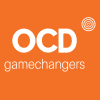The COVID-19 pandemic, at this point, is pretty much synonymous with anxiety and exhaustion. Social isolation, anxiety over contracting and spreading the virus, and overall mental fatigue have become prominent features in many people’s lives since the dawn of COVID-19, but none more so than those who are diagnosed with OCD.
First and foremost, those who suffer from the contamination subset of OCD are highly likely to encounter more anxiety triggers due to the threat of contracting COVID-19. Further, the overwhelming space COVID-19 related material takes up in popular media makes it a topic that is hard to ignore. This bombardment of negative and potentially scary information drives up anxiety levels for most everyone, but even more so for those who already associate topics like viruses, germs, or health conditions with anxiety and OCD triggers.
Beyond producing many additional stressors than experienced in “normal life,” the pandemic also creates more opportunities for interpersonal relationship issues. This can look like interpersonal conflict for those confined to sharing small living spaces, or it can be social isolation for individuals who may be independently socially distancing or quarantining. Both polar opposites, of either being constantly in close proximity to others or lacking in social interaction, can add stress to individuals and relationship dynamics. Of course, this subsequently leads back to higher levels of stress and can encourage OCD symptoms to become more prominent.
In saying all this, COVID-19 lockdown and/or social distancing measures do not have to result in OCD flare-ups and additional anxiety— there are a few easy things that can be done to mediate the effects that COVID-19 has on your daily life. While obviously some individuals with OCD may require therapy (one on one or group therapy) and/or medical intervention to adequately manage their symptoms, these tips can be implemented in addition to any existing treatment or recovery plan in order to minimize the negative impact of the pandemic on mental wellness.
For one, try to get outside everyday! Not only will you receive a little vitamin D boost, you’ll get some fresh air and a change of scenery which may help reroute negative thought patterns or create a positive distraction from obsessions! If you add some kind of movement to your daily outdoor adventures (e.g. jumping rope, going for a walk, gardening, etc.), you can kill two birds with one stone: you’ll get all the benefits of being outdoors and by getting some physical activity, you can boost your endorphins and improve overall mood! Just don’t forget to apply SPF to protect your skin!
Further, staying hydrated every day is vital— even more so if you’re exercising. Make sure to sip water throughout the day to keep your hydration levels stable!
Finally, take time each day to reflect and relax. Make sure that you make time to do things that you enjoy and that make you feel good. This may be the same thing or different things everyday— but no matter what it will be unique to you. This doesn’t always have to be something you actively do, but anything that helps you relax like watching your favourite television show or colouring in a book.
The pandemic and all the stress that it brings do not have to wreak havoc on OCD symptoms, small additions to your daily routine can help you navigate both COVID-19 and OCD.

